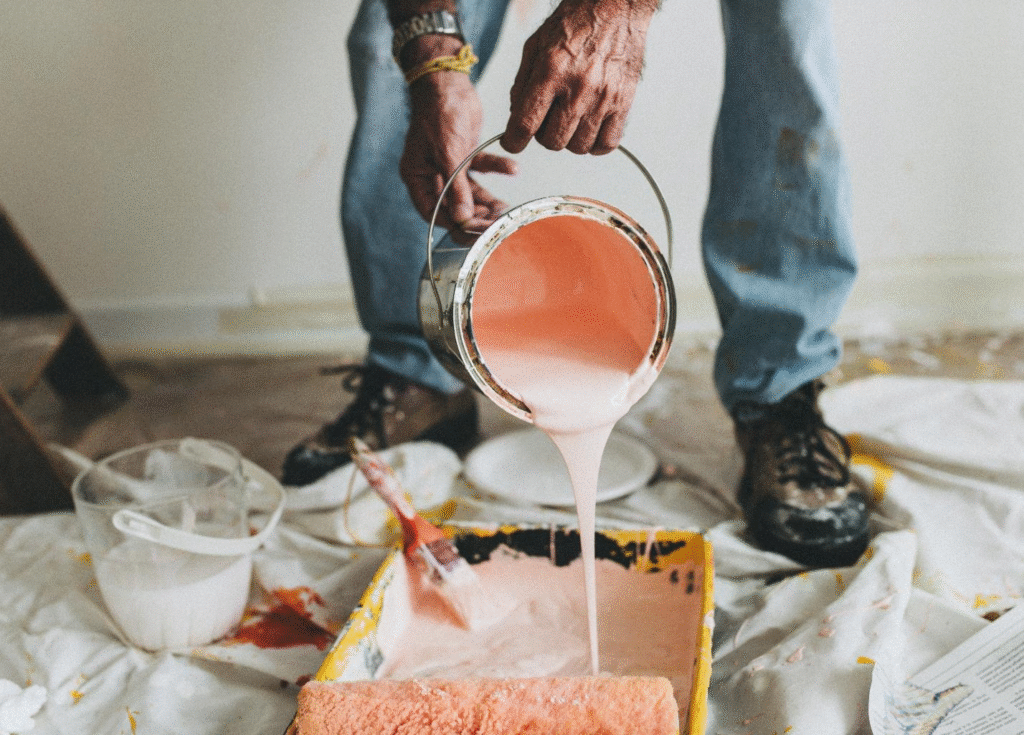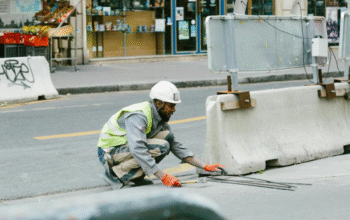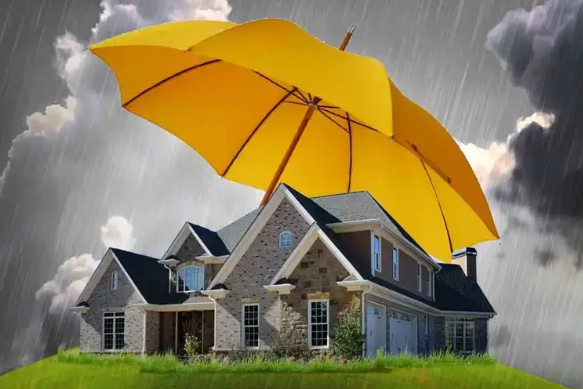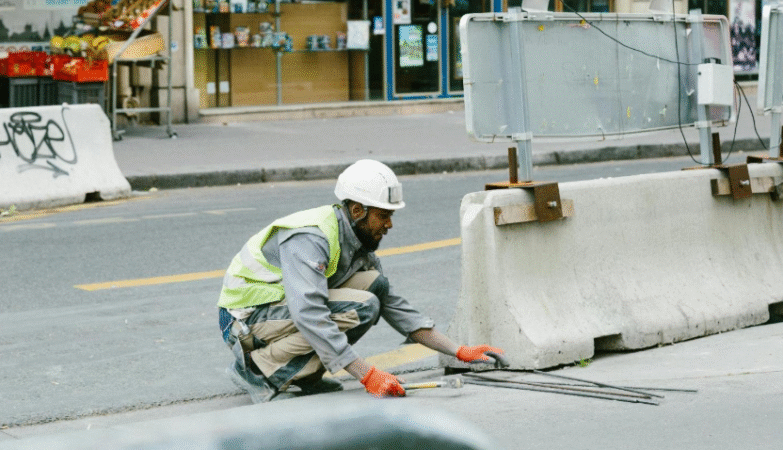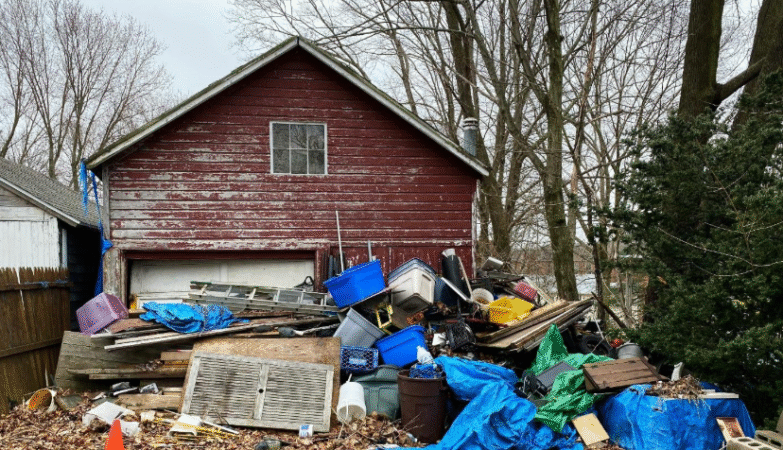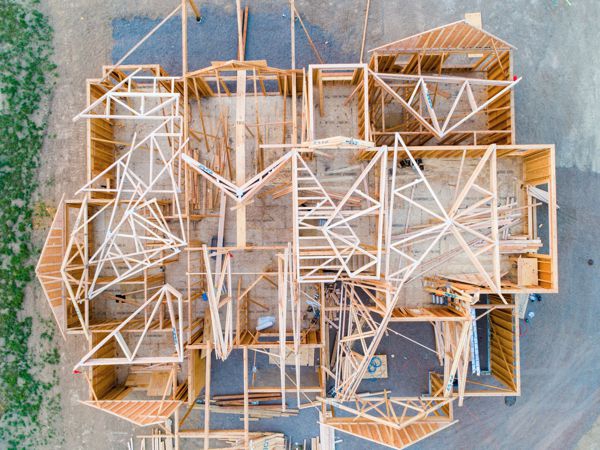
Americans have never been richer. The Federal Reserve
recently published its 2Q 2021 report looking at the health of the economy. Total household net worth is $159 trillion, up $32 trillion (+25%)
since the depth of the pandemic fears in 1Q 2020.
Of the $32 trillion increase in household net worth, $20 trillion (64% of the total increase) is from a booming stock market and related investments,
while $5 trillion (14% of the total increase) is from higher home prices. Who would have thought that the market would be so hot one year
following the greatest job loss in history during 2020?
Low interest rates and fiscal stimulus have helped juice the economy. Demand is high, which is leading to
shortages in various supply chains, such as new heavy-duty trucks.
Housing demand is high as employment grows and wages gain. Supply chain constraints extend to the housing industry, which in
turn is causing higher
new home construction costs.
US Household Net Worth

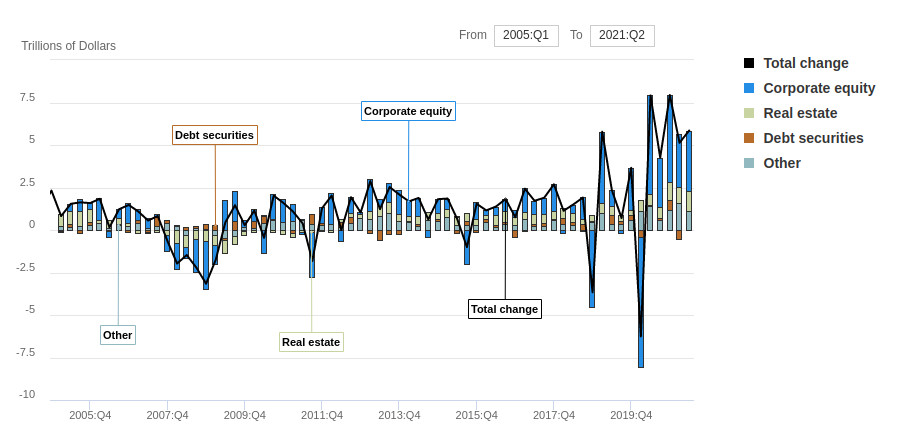
Source: Federal Reserve
Takeaway: The household net worth gains over the past year are large compared to history.
EyeOnHousing
noted that real estate assets are increasing much faster than real estate liabilities. Homeowners’ equity increased in the latest quarter
to $24 trillion, or 68% of all household real estate. This represents the highest share since 1989.
NAHBNow recently reported
builder confidence rose in September after a three-month decline as lumber prices moderated and housing prices continued to increase.
Builder confidence had eroded recently as home builders were faced with worsening building material supply chain issues
and labor challenges.
Builder sentiment has been gradually cooling since the HMI hit an all-time high reading of 90 last November.
The September data show stability as some building material cost challenges ease, particularly for
softwood lumber. However, delivery times remain extended and the chronic construction labor shortage is
expected to persist as the overall labor market recovers. – NAHB Chairman Chuck Fowke
The NAHB/Wells Fargo Housing Market Index (HMI) rose one point to 82 in September 2021. The HMI measures
builder perceptions of current single-family home
sales and sales expectations for the next six months as “good,” “fair” or “poor.” The survey also asks
builders to rate traffic of prospective buyers as “high to very high,” “average” or “low to very low.”
Scores for each component are then used to calculate a seasonally adjusted index where any number over
50 indicates that more builders view conditions as good than poor.
New Single-Family Home Construction Is Increasing
The inventory of homes available for sale is much lower than it should be. According to
Altos Research,
the inventory of homes available for sale is about 50% lower than what Altos considers a “normal” level.
Altos’ August update showed that inventory availability is improving slightly, but there remains a long road
ahead to get back to normal levels.

Source: Altos Research
Takeaway: Inventory of homes available for sale began to rise recently after a multi-year downtrend.
Nationwide inventory of homes available for sale remains about 50% of a “normal” level, which supports an
extended construction recovery.
The need for more housing should continue to benefit new and used construction equipment sales, as well as equipment
rental. Residential construction has knock-on effects, whereby cities need to build more infrastructure such as
roads, utilities, schools, hospitals, etc. Non-residential construction is influenced by residential construction, and it
historically has followed residential construction trends by a 6-12 month lag.
Construction equipment manufacturers and
equipment rental companies are positive on the residential construction outlook as well.
Caterpillar, John Deere, Case Construction, United Rentals, Sunbelt Rentals, Herc Rentals and others cited positive trends and
an optimistic outlook.
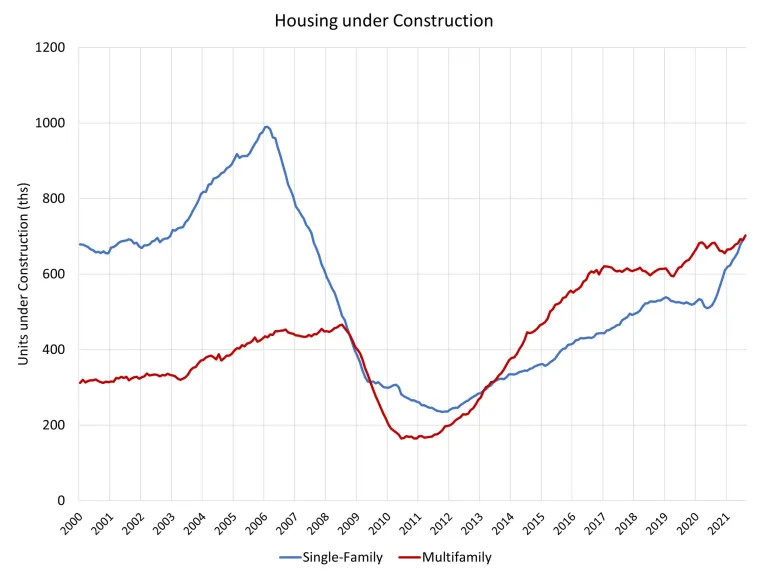
Source: EyeOnHousing
Takeaway: New single-family homes under construction accelerated in 2021 as prices rose.
Single-family new home construction was at an abnormally low level following the financial crisis.
The industry under-built new homes relative to long-term trends for about a decade (see blue line above), which is why
we are facing the current housing availability shortage.
Overall, the outlook for both residential and non-residential construction is optimistic at the moment.
As long as interest rates stay in check, there is a strong need to build more homes and get back to
a normal housing inventory level.
Find Similar Articles By Topic
#construction
#real estate
#housing



